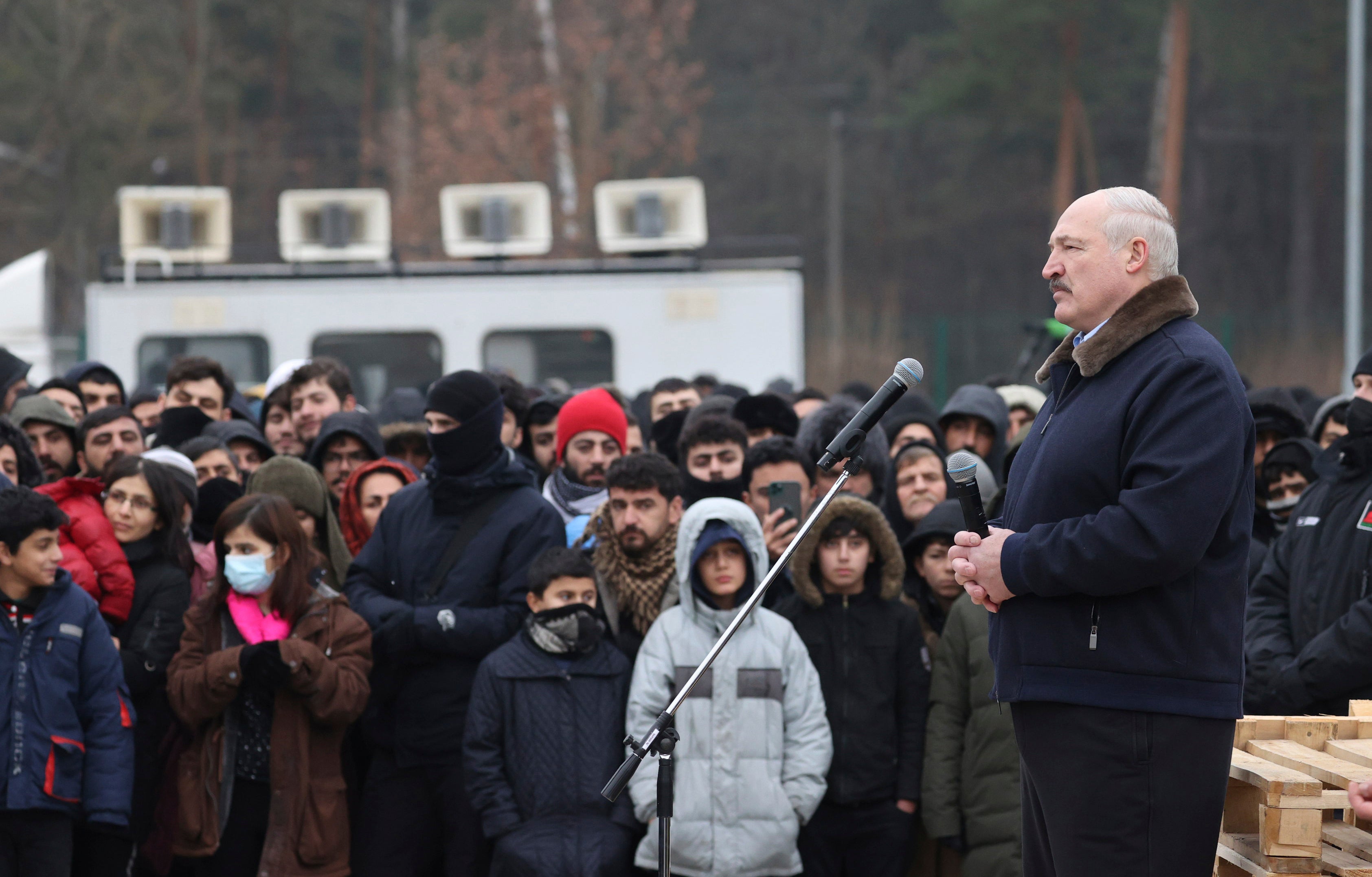‘Go through,’ Lukashenko tells migrants at Belarus-Poland border
The Belarus president visited the border and said he will not force migrants to return home

Belarusian leader Alexander Lukashenko told migrants stranded at the border with Poland on Friday that his country would help them to return home if they wanted but would not force them.
Thousands of migrants are stuck on the European Union’s eastern frontier, in what the EU says is a crisis Minsk engineered by distributing Belarusian visas in the Middle East, flying them in and pushing them across the border.
But Lukashenko said it was the EU that deliberately provoked a humanitarian crisis that needed to be resolved and he told the migrants he would not play politics with their fate.
In his first public appearance at the border since the start of the crisis, Lukashenko met migrants at a warehouse turned into a shelter and told them they were free to head west or go home as they chose.
An Iraqi teenager told Lukashenko she could not return home and hoped to continue on to Europe. “We won’t only hope,” Lukashenko answered. “We will work together on your dream.”
Lukashenko said no-one would be coerced.
“If you want to go westwards, we won’t detain you, choke you, beat you,” he said as hundreds of migrants applauded. “It’s up to you. Go through. Go.”
He added: “We won’t in any circumstances detain you, tie your hands and load you on planes to send you home if you don’t want that.”
Poland and other EU nations say the crisis is part of a “hybrid war” Minsk is waging in retaliation for EU sanctions imposed in response to Lukashenko’s crushing of protests against his disputed re-election last year, and is designed to destabilise the bloc.
The EU has agreed on new sanctions in response to the border crisis, which diplomats in Brussels say should be approved and adopted in early December.
Latvia, Lithuania and Poland, bearing the brunt of the crisis, have deployed thousands of border guards, soldiers and police to seal the border and push back migrants attempting to cross over from Belarus.
Lithuania said on Friday it could close its border crossings if more migrants attempted to cross from Belarus in trucks.
Belarus has begun to fly some migrants home, but has said it is waiting for an answer from the EU on its demand that Germany should accept 2,000 stranded at the border, which the EU has rejected and Germany has denied agreeing to.
On Friday, two planes brought hundreds of Iraqis back from Belarus to Erbil, capital of Iraq’s Kurdish autonomous region.
Two more flights were expected on 26-27 November, the TASS news agency reported.
Warsaw has said the repatriation of migrants marked a change of tactics rather than a genuine attempt at de-escalation and Polish Prime Minister Mateusz Morawiecki, touring European capitals this week to rally support for a tough response, raised the possibility of further sanctions if the crisis escalated.
Poland and Lithuania continue to report crossing attempts by migrants who are increasingly desperate with the onset of winter conditions. Polish authorities also reported unrest at one of the detention centres set up for migrants who made their way into the country.
The issue has exacerbated strife between Russia and the EU, whose ties have been at post-Cold War lows since Moscow’s annexation of Crimea from Ukraine in 2014.
Russian President Vladimir Putin, who helped Lukashenko ride out mass street protests after last year’s election, has also backed Belarus in its most recent standoff with the EU.
Reuters
Join our commenting forum
Join thought-provoking conversations, follow other Independent readers and see their replies
Comments
Bookmark popover
Removed from bookmarks